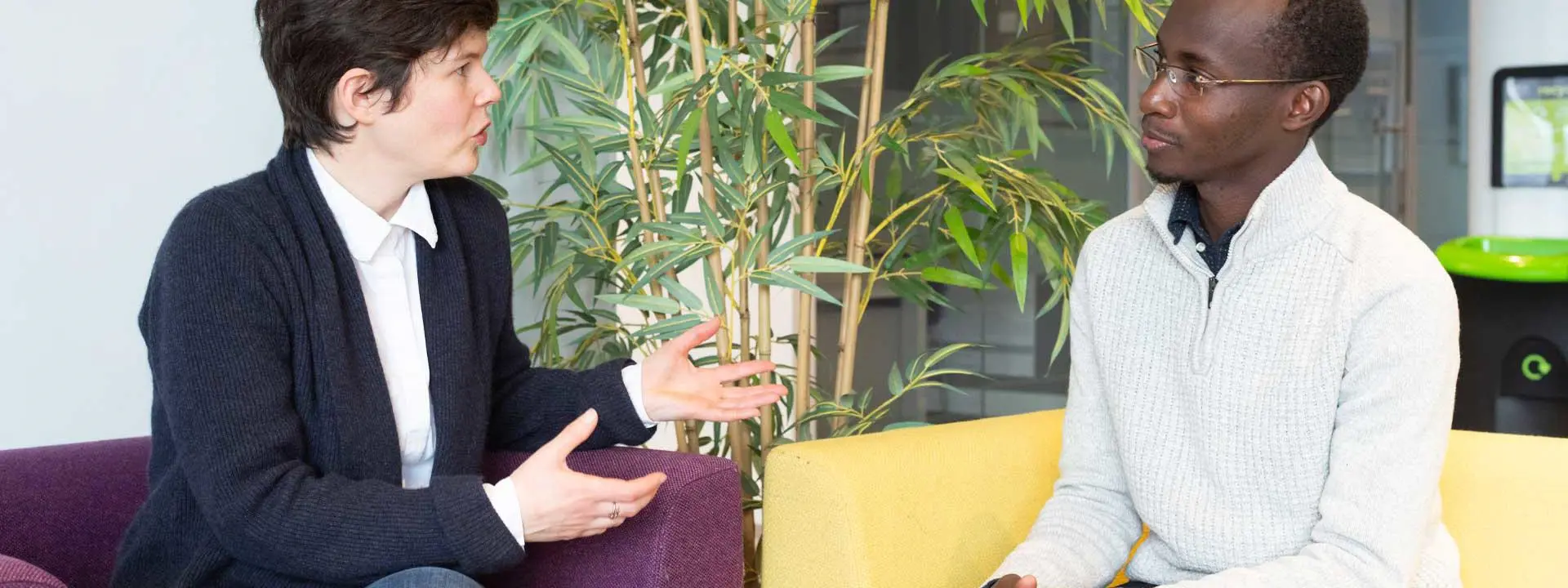Making Diagnostics Accessible

Professor Maïwenn Kersaudy-Kerhoas (Heriot-Watt University) and Doctoral Researcher Tushabe Vianney (The University of Glasgow) were two of the twenty-five researchers from nine different countries who, in December 2023, travelled to Ashesi University in Accra, Ghana, to lead a workshop on collaboration and innovation in diagnostics.
This groundbreaking event, part of the broader Global Frugal Diagnostics Network (GFDN) project, was partially funded by generous Heriot-Watt donors. We had the opportunity to sit down with them and find out more.
The GFDN was founded to help solve the problem of diagnostic inequality, which sees 47 per cent of the world’s population with little to no access to diagnostic services. Many countries in the Global South face unique challenges in the form of local pathogens and diseases, and yet almost all innovation in diagnostics occurs in the Global North. “Across continents, we’ve inherited a system that is anachronistic and outdated,” Maïwenn explains, “with the idea that only the Global North has the power to innovate.”
The consequences of this assumption are manifold and, while interventions from the Global North have provided short-term solutions, Vianney explains that “the lack of continuity once a study or intervention concludes” has caused consistent problems in both his native Uganda and elsewhere. “The failure to effectively communicate results back to local communities has hampered the sustainability of these initiatives.”
What’s needed – and what the GFDN is focusing on building through its workshops, research, and outreach work – is to overcome what Vianney calls the “glaring gap in capacity-building at the local level.”
The COVID-19 pandemic played a particular role in bringing the issues facing the African continent into focus.
Since the pandemic, we’ve become more aware that virus strains can differ from region to region, highlighting the need for ‘tailor-made’ diagnostic platforms and connected diagnostics – that is, pandemic preparedness via the exchange of information at both the national and international level.
Vianney reframed the problem in the lingua franca of chocolate: “In the UK,” he says, “chocolate bars have a low melting point because it never gets warm enough for that to be a problem for consumers.” In Uganda, meanwhile, chocolate has a high melting point; chocolate bars made for the British market would be a (very gooey) disaster. If this common-sense approach works with confectionary, why not diagnostics?
The Workshop
Thanks in part to the support of Heriot-Watt donors, the GFDN’s inaugural hands-on workshop went ahead at Ashesi University in Accra, Ghana, and was attended by academics, researchers, developers, manufacturers, and regulators from all across the African continent, as well as representatives from Médecins Sans Frontières and the Kühne Foundation.
It was a roaring success: attendees built nucleic acid lateral flow assays and microfluidic sample preparation devices, collaborated on identifying and working towards local clinical needs, began developing supply chains at partner institutions, and laid the foundations for future teamworking and resource sharing.
“This event was both the pinnacle of nine months of hard work and a moment of validation for the network,” Maïwenn tells us. The Network is planning to host another workshop in December 2024.
Your Support
The vital work the GFDN is doing would not be possible without external funding. Alongside the Royal Academy of Engineering and the ERC-funded DiaDev project, several Heriot-Watt University Sir Walter Scott Giving Circle members were instrumental in generously donating to the Network and enabling the December 2023 workshop.
Asked what further funding would enable the GFDN to achieve, Maïwenn says, “Further funding now would ensure the sustainability of the network in coming years. Our priorities are to employ a full-time network manager and organise and fund another in-person workshop in December 2024. We are hoping to go to Kampala in Uganda this time!”
Vianney agrees, adding: “In the longer term, additional funding could help the GFDN build diagnostics research and development excellence centres in Low- and Middle-Income countries.”
So, while important work has already been done, the GFDN is only just getting started. Its vision – an international network of medical practitioners, researchers, suppliers, manufacturers, and policymakers across the Global South – is poised to remake the world’s diagnostic landscape, and you can be a part of it.
To learn more about the work of the Global Frugal Diagnostics Network, email giving@hac.ac.uk, and learn more about Heriot-Watt’s campaign for global impact, Shaping Futures.
This piece originally appeared in the HW Donor Impact Report 2023/2024. To get your copy, contact Stewardship Officer, Frederick Johnson - f.johnson@hw.ac.uk.